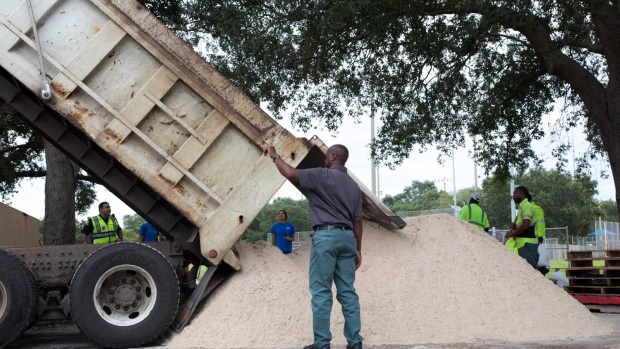Sep 27, 2022
Florida’s Chaotic Insurance Market Braces for Hurricane Ian
, Bloomberg News

(Bloomberg) -- Hurricane Ian is bearing down on Florida, threatening to further destabilize a homeowners-insurance market already teetering on the edge of disaster.
The storm is expected to make landfall along the southwest Florida coast late Wednesday or early Thursday. While Ian’s strength and trajectory are subject to change in the coming days, one early estimate pegs potential damage and economic losses in the Tampa Bay region at $60 billion to $70 billion.
Ian, which could send seawater coursing through the streets of Tampa, is arriving in the wake of six insolvencies among insurers that write homeowner policies in the state. The largest insurers largely pulled back from the market after taking a beating from natural disasters, and the smaller firms still active there have struggled to endure losses.
“It’s kind of the worst timing for the storm, especially if it hits Tampa Bay,” Logan McFaddin, vice president of state government relations for the American Property Casualty Insurance Association, said in an interview.
Flood damages aren’t typically covered in home policies. Instead, they fall under policies managed by the Federal Emergency Management Agency.
“If this is a major flood event, that could leave many homeowners vulnerable,” said Mark Friedlander, a spokesman for the Insurance Information Institute. “If there were major windstorm losses, other companies could be pushed in the direction of potential insolvency as well.”
State-backed Citizens Property Insurance Corp. accounts for slightly more than 10% of the Florida homeowners insurance market by premiums written. The market share is somewhat higher in some of the counties surrounding Tampa, according to Michael Peltier, a spokesman for Citizens.
The insurer has been forced to take on more market share as other firms fold or cease writing policies due to rampant litigation and scams lawmakers have struggled to subdue.
Progressive Corp. has said it doesn’t want renew about 60,000 policies in the state, citing efforts to “limit growth in the coastal and hail-prone” areas while focusing on regions less prone to catastrophe losses. Florida has passed legislation that would make those exits harder; meanwhile, the company is charging more for insurance, particularly for homes with older roofs.
As part of its preparations for the storm, Citizens is setting up catastrophe-response teams and getting ready to deploy vehicles equipped to assess damage and assist customers who lose internet access.
“It’s no secret that the private market has been facing some challenging times here in Florida,” Peltier said. “Having a hurricane come ashore certainly doesn’t help.”
©2022 Bloomberg L.P.


